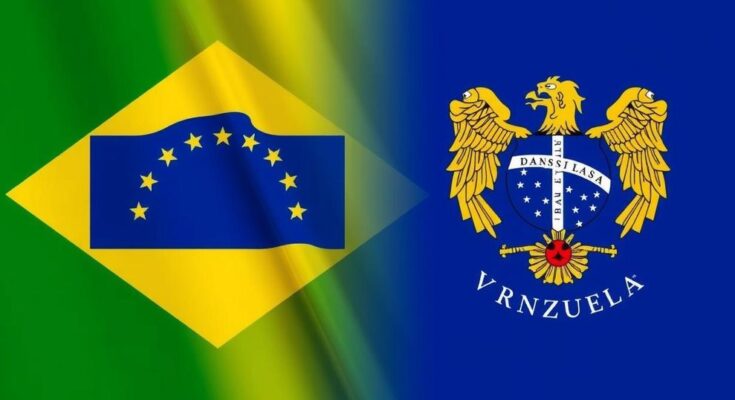Venezuelan President Nicolás Maduro claimed Brazil’s veto blocked Venezuela’s entry into the BRICS bloc, despite personal assurances from Brazil’s Foreign Minister. The exclusion has escalated tensions between Venezuela and Brazil amid ongoing disputes over election legitimacy. Maduro emphasized the need for BRICS to lead independent financing efforts to counter U.S. sanctions, which have critically impacted Venezuela’s economy.
In a recent address, Venezuelan President Nicolás Maduro attributed his country’s exclusion from the XVI BRICS Summit to a Brazilian diplomat’s unexpected veto, despite prior assurances from Brazil’s Foreign Minister. During his weekly television broadcast, Maduro revealed that he had received personal guarantees from Minister Mauro Viera regarding Venezuela’s acceptance into the BRICS bloc, which aligns nations aiming to create a multipolar world. However, at the summit held in Kazan, Russia, while 13 new partner nations were welcomed, Venezuela was notably excluded, which Maduro deemed a “stab in the back”—an action motivated by diplomat Eduardo Paes Saboia, who reportedly undermined prior agreements. Maduro criticized Brazil’s foreign service, Itamaraty, suggesting its historical ties to U.S. interests as a driving factor behind the veto. This exclusion amplified existing tensions between Caracas and Brasília, further strained by disputes over the legitimacy of the recent Venezuelan presidential elections, which Maduro claimed to have won despite calls of fraud from the opposition. Brazilian President Luiz Inácio Lula da Silva’s non-attendance at the summit and his previous insistence on transparency regarding the election results highlighted the diplomatic discord. Venezuelan officials had long sought BRICS membership as a potential remedy to the economic struggles exacerbated by U.S. sanctions. Maduro’s campaign included calls for the BRICS to innovate an independent international financing framework, emphasizing the need for alternative economic strategies beyond U.S. dominance. The BRICS bloc, comprised of notable global players including Brazil, Russia, India, China, and South Africa, recently expanded to include countries such as Algeria and Nigeria, but Venezuela’s absence was a significant disappointment for Maduro as it represented a lost opportunity for critical support amid ongoing economic challenges.
The BRICS organization, known for fostering a multipolar world, held its latest summit amid intense global tensions and economic challenges. Venezuela positioned itself as a candidate for inclusion, viewing membership as essential for economic recovery and enhanced international support, particularly against the backdrop of U.S. sanctions severely impacting its economy. Maduro’s administration has faced accusations of authoritarianism and electoral fraud, complicating its diplomatic relations, especially with Brazil under Lula da Silva, who has expressed concerns over democratic processes in Venezuela.
Maduro’s announcement highlights the fragility of international relations and the complexities of BRICS membership negotiations. The veto by Brazil underscores potential undercurrents of political maneuvering within Latin America, reflecting deeper issues of colonial legacies and power dynamics in the region. As geopolitical tensions persist, the exclusion of Venezuela from such a pivotal alliance serves as a reminder of the intricate web of diplomacy and the challenges faced by nations striving for economic and political validation in a rapidly changing global landscape.
Original Source: venezuelanalysis.com




